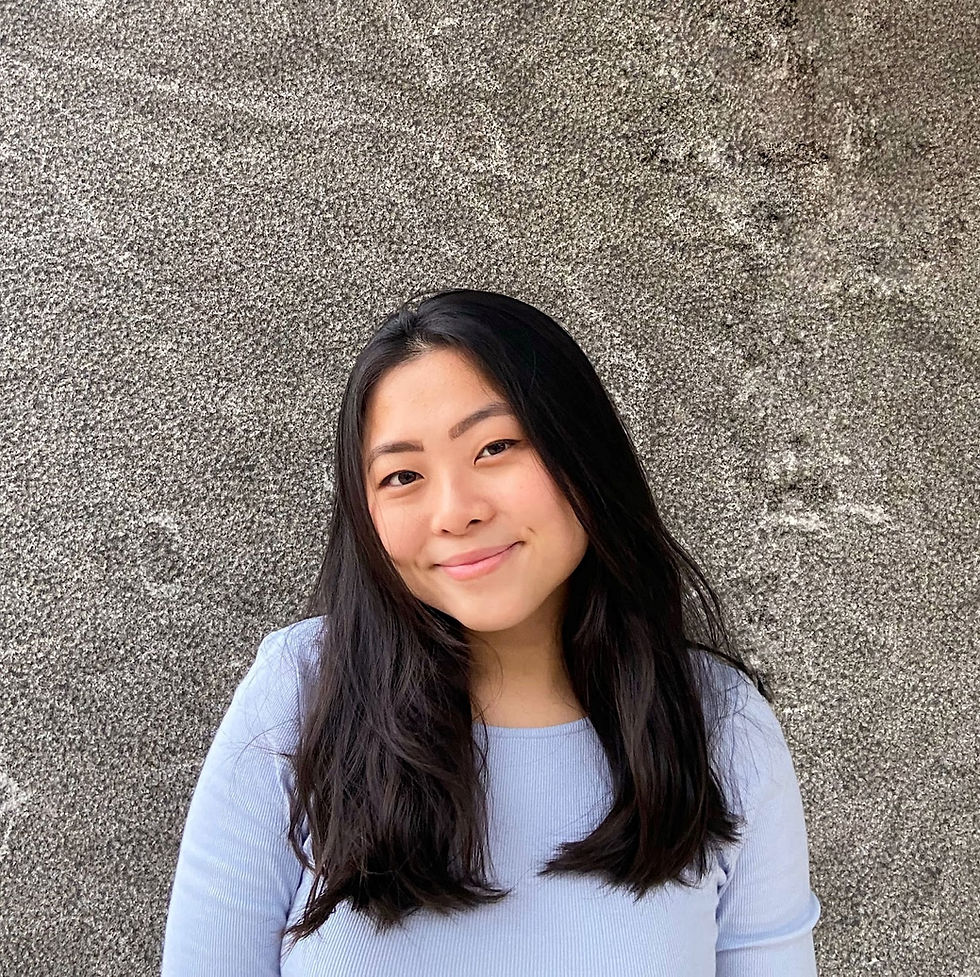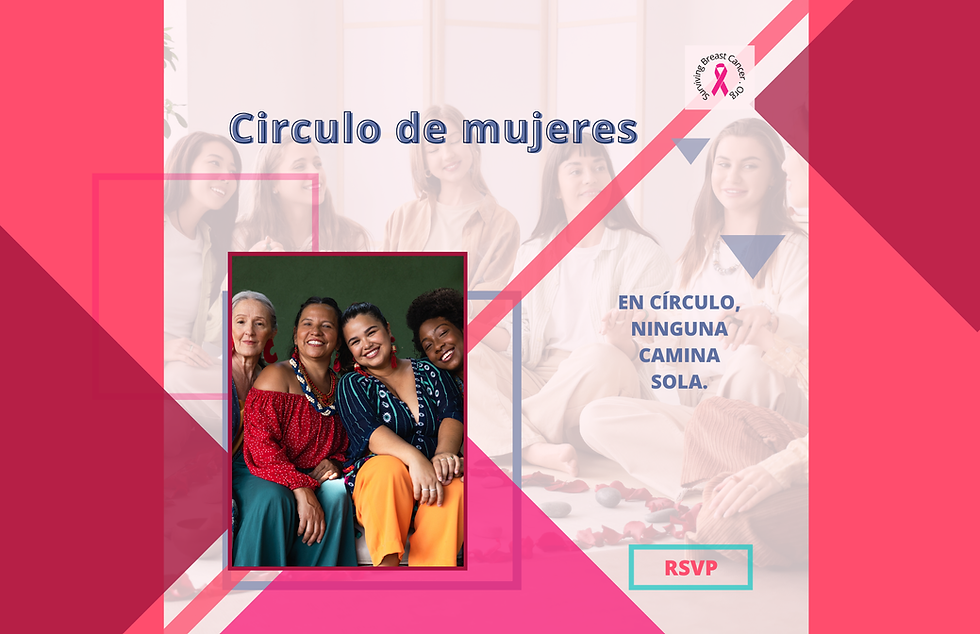The Power of Knowledge (My BRCA Story)
- Surviving Breast Cancer

- Jan 17, 2023
- 4 min read
Updated: Aug 12, 2025
By Kelly Hsu

My mother was diagnosed with triple-negative breast cancer in the winter of 2015. During this time, I was just a sophomore in high school. Everything in my life became peripheral as our family cared for her through her journey with cancer. After surgery and a grueling year of chemotherapy, she was finally cancer-free.
Prior to a routine OB-GYN visit over the summer, I was sent an online screening questionnaire. This form asked me routine questions about my family history of cancer, and I provided information I knew about my mother. At my OB-GYN appointment, my physician explained the purpose of the screening questionnaire, and that based on the information I’d provided, I qualified for genetic testing. Because of my strong family history of cancer, this would be covered by my insurance. Since I was already getting labs drawn, I figured a few extra tubes of blood would not make a difference.
About two weeks later, I got a phone call from a genetic counselor. She informed me that I tested positive for the BRCA2 mutation, which increases one’s predisposition to developing breast cancer. She set up a virtual appointment for us to talk.
I had heard of BRCA before, on a TV show, “The Bold Type.” In this show, the protagonist chooses to have a prophylactic double mastectomy to minimize her risk of breast cancer. Hearing and processing this news for myself was terrifying and overwhelming. Prior to my genetic counseling appointment, I pored over pages and pages of internet resources and journal articles. I obsessed over the different numbers and percentages that told me my lifetime risk of cancer, and the preventative measures that I could take to reduce or minimize my risk. I learned that my BRCA mutation increased not only my risk for breast cancer, but also ovarian cancer. In this age of digital connectedness, having an abundance of information is a great resource, but at times, can also be a tremendous burden.
At my genetic counseling appointment, I listened as my counselor asked me about my understanding of my results. She began by drawing a comprehensive picture of my family tree, asking me about my family members and their different histories of cancer. She outlined the risks and management options and asked me about my preferences. This hour felt long, but after my genetic counseling appointment, I felt much more reassured and redirected in my knowledge. I knew that there was not one singular path that individuals with BRCA mutations take, and that there are different management options for a person depending on their goals and values. With my genetic counselor, I came up with a plan that would work for me. My personal plan involves getting a mammogram and breast MRI yearly, beginning when I turn 25.
Genetic counseling can be expensive out-of-pocket, but many insurance companies can cover most of the cost, especially if you have a strong familial history of cancer. In my case, the company that provided my genetic testing offered free testing for my family members within 90 days of my test results.
BRCA mutations are autosomal dominant mutations, which means that if an individual has the BRCA mutation, there is a 50% chance that they can pass it down to their child. My mother received genetic testing a month after I received my results, as evidence most strongly pointed to her being a carrier. Surprisingly, she was negative for the BRCA2 mutation. My father tested soon after, and results confirmed that he was the carrier of the mutation. BRCA affects men as well, and men who have the mutation have an elevated risk of breast, prostate, and pancreatic cancer. This emphasized to me how crucial it is to never make assumptions. Only through genetic testing can you confirm and truly understand everyone’s personal genetic risk. Your genetic counselor can not only help you assess your risk, but also help you understand how to communicate with close relatives who may also be at risk.
Everyone has a different preference for how much information they want to know, and the decision to get genetic testing is a personal choice. However, knowledge is the best way to plan for early prevention and/or detection of cancer. Since my visit with my genetic counselor, I feel more empowered and adequately informed to plan ahead. As of now, I am set up with my local breast health center, and am scheduled to start my preventative visits in a few months.
If you think that you may be eligible for genetic testing, you should speak to your physician or a genetic counselor to learn how to take the next steps. You are not alone. Your clinicians and genetic counselor can help you make informed decisions about your personal and familial risks, and help guide you as you make the most appropriate decisions for yourself and your loved ones.
Learn More:
Author bio:

My name is Kelly Hsu and this is my first blog post for SBC. I am a recent graduate of Wellesley College (Class of ‘21), where I studied neuroscience. I am currently working as a Clinical Research Coordinator at the Massachusetts General Hospital Cancer Center on several patient-centered outcomes research studies. Through my experiences, I have developed passions for health education, psychosocial oncology, and palliative care. I plan to attend medical school next fall, where I hope to keep pursuing these interests.
Thank you for sharing your story, Kelly. SBC loves you!
SurvivingBreastCancer.org Resources & Support:










